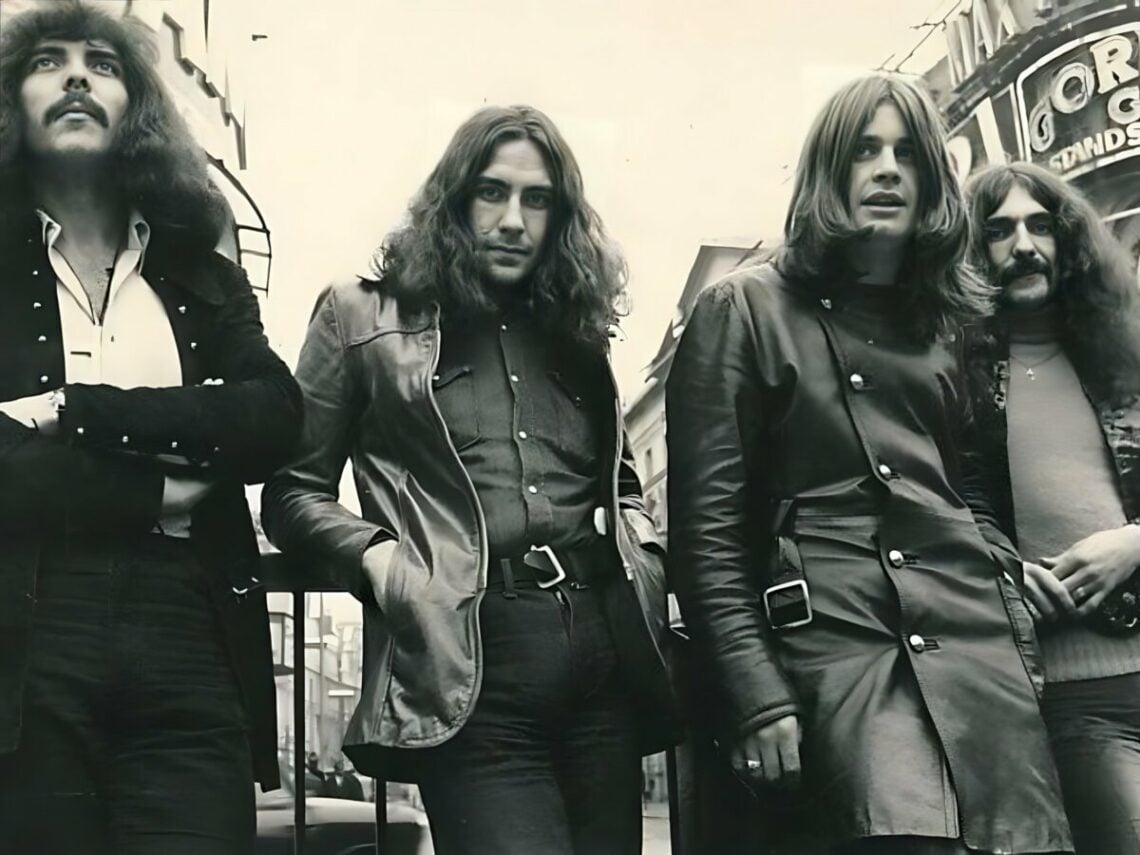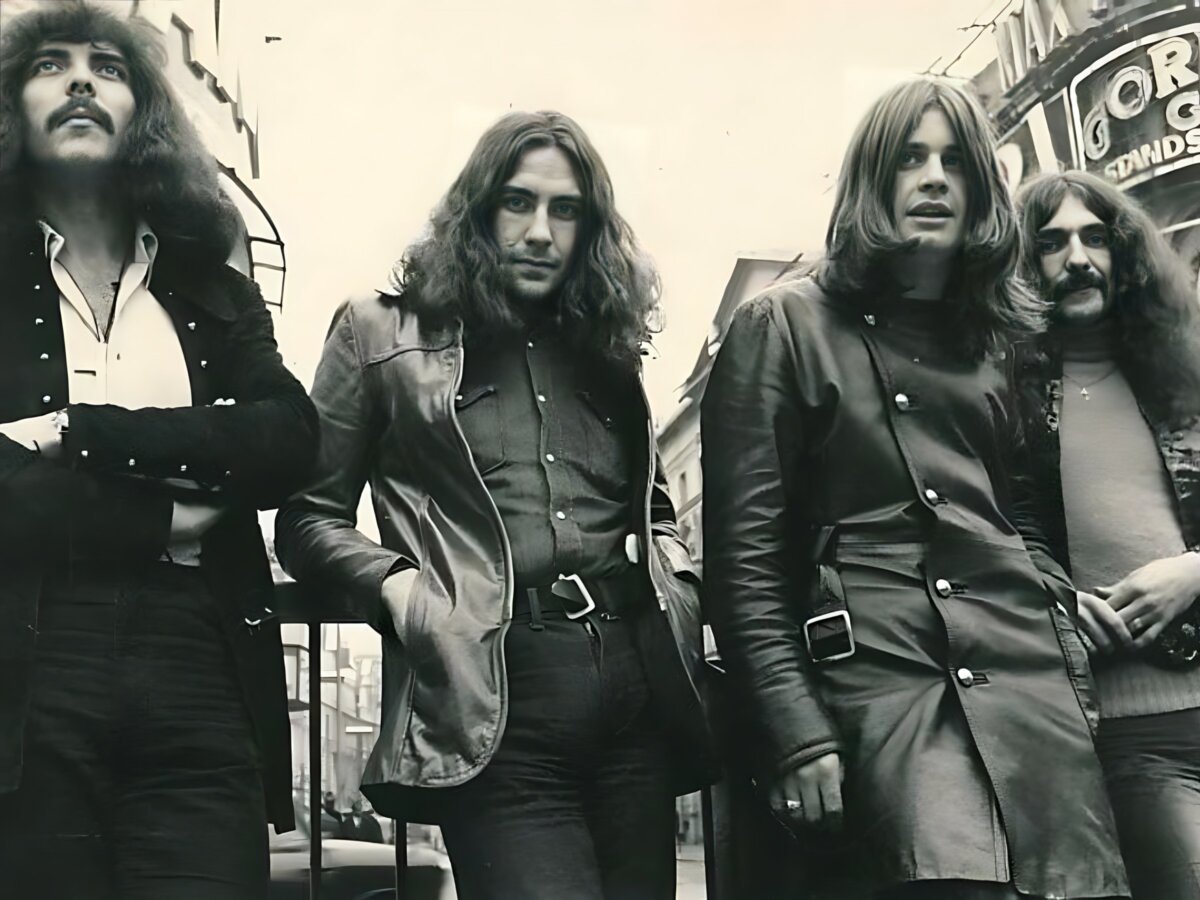
(Credit: Vertigo Records)
Sun 3 August 2025 19:30, UK
There once was a short-lived British psychedelic rock band called Earth, fronted by Glenn Campbell (not the ‘Rhinestone Cowboy’ one), which released two little-heard singles in 1969. If that sounds more like a footnote than a biography, it’s because Earth is essentially remembered solely for their indirect role in inspiring a young Ozzy Osbourne and Geezer Butler to come up with a new name for their own upstart rock band that same year.
From 1968 into ‘69, Osbourne, Butler, Tony Iommi, and Bill Ward had also been playing gigs around the UK under the name Earth, leading to some occasional confusion with Campbell’s London-based band. The Birmingham boys were quite annoyed by this—especially Ozzy, who never liked the name to begin with—and it was soon concluded that a rebrand was probably in order. As it turned out, Campbell was already planning to disband his version of Earth, as well—he’d form an even more terribly named band called Juicy Lucy by the end of 1969. Meanwhile, Ozzy and Geezer settled on a far better moniker.
As the legend goes, Osbourne and Butler would famously find their inspiration from a cinema marquee across from their rehearsal space, which was showing an Italian horror film called Black Sabbath. Not only did the new name fit their dark, heavy sound far better than “Earth,” it also generated some unexpected controversy and media attention, as the band was immediately questioned about its possible ties to witchcraft, black magic, and various other things that Ozzy would always simultaneously deny and embrace as part of his image.
In a 1970 interview with the The Daily Record in Glasgow, a 22-year-old Ozzy downplayed the significance of rock band names in general, pointing out the silliness of taking such things literally.
“The Small Faces aren’t little people,” he said. “The Beatles aren’t insects, and the Rolling Stones aren’t the result of a landslide. So what’s in a name? Nothing.”
At the time, in July of ‘70, Ozzy was far more interested in discussing the release of Black Sabbath’s brand new single, the soon-to-be-legendary metal classic ‘Paranoid.’ Rather than focusing on the ferocious sound of the track, though, Osbourne tried his best to explain the lyrics, which had been written by Butler, and the character he was inhabiting within the song’s world.
“It’s about this guy who is having trouble with his bird, see,” Ozzy said, “and he finishes up going around in circles like.” That is the full summation, at least as The Daily Record printed it.
Both the ‘Paranoid’ single and the album of the same name became game-changers for Black Sabbath, scoring them their first major hits in both the UK and US. Upon their release, Osbourne was wisely aware that the era of the full-length album had arrived, and that single sales were going to have decreasing importance.
“Working class kids can’t afford to buy singles any more,” he said. “They get much better value from LPs.”
What Ozzy couldn’t have anticipated, of course, was the even greater convenience of online streaming, which has led to another massive rise up the charts for ‘Paranoid’ here in 2025, starting with Black Sabbath’s farewell concert and taken even further by Osbourne’s death just weeks later.
Remarkably, even across a five-decade career filled with no shortage of recognisable hits, the jolt of ‘Paranoid’—and the tale of a man “having trouble with his bird”—continues to resonate with audiences more than any other track in the Sabbath or Ozzy catalogues. Maybe it’s because the central plea of the song is a timeless one, untied to any trends of its era and uniquely vulnerable for its genre: “I need someone to show me / The things in life that I can’t find.”
Related Topics

